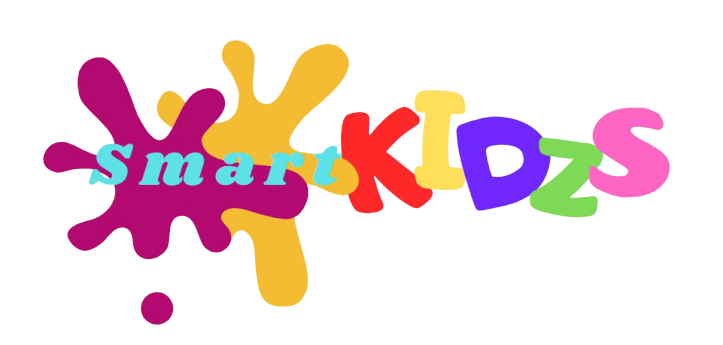In summary, math can sometimes be a challenging area for several kids. However, using technologies and more interactive ways has made it more engaging. The traditional method through which learning was through worksheets and textbooks seldom appealed to kids, while math learning apps help incorporate games, animations, and interactive exercises that are fun and easier to grasp.
With the help of the right app, children can practice important math concepts at their own pace, receive instant feedback, and gain a unique personalized learning experience. Many apps also have a reward system and adaptive learning tools that inspire children to excel and avoid stagnating in their progress.
In this guide, we present some of the best math learning apps for children that help them build their confidence in math through fun and effective learning. Whether to help with basics such as counting in preschool or fractions in middle school, these apps will teach kids the joys of math in a relaxed and enjoyable atmosphere.
How Math Apps Help Kids Learn
Math learning apps are crafted to make math enjoyable, engaging, and easier to grasp. Unlike traditional methods, these apps utilize interactive and personalized approaches to help children build strong math skills. Here’s how they enhance learning:
-
Gamification: Making Math Fun with Rewards & Challenges
Many math apps integrate game-like features such as points, levels, and rewards to keep kids interested. By transforming math exercises into enjoyable challenges, children are motivated to practice more and enhance their skills.
- Encourages regular practice through enjoyable activities.
- Reduce math anxiety by making learning fun.
- Keeps kids engaged and enthusiastic about solving problems.
Example: Apps like Prodigy Math Game adopt an adventure-style format where kids solve math problems to advance in the game and earn rewards.
-
Personalized Learning: Adapting to Each Child’s Skill Level
Every child learns at their own pace, and math apps provide adaptive learning paths that adjust according to a child’s performance. This ensures they are challenged appropriately without feeling overwhelmed.
- Offers tailored lessons based on individual progress.
- Helps kids gain confidence by reinforcing concepts they find difficult.
- Ensures a step-by-step learning process with gradual increases in difficulty.
Example: Khan Academy Kids features a customized learning path that evolves based on the child’s performance.
-
Interactive Exercises: Hands-On Learning for Better Understanding
Math apps employ visuals, animations, and touch-based activities to create a more interactive learning experience. Instead of merely memorizing formulas, kids can drag, match, and manipulate numbers to gain a deeper understanding of concepts.
- Aids children in visualizing math problems rather than just reading them.
- Enhances problem-solving skills through hands-on experiences.
- Promotes critical thinking by involving kids in real-world math applications.
Example: Moose Math uses interactive activities like counting objects, creating patterns, and solving puzzles to teach early math skills.
-
Instant Feedback: Learning from Mistakes in Real-Time
One of the key benefits of math apps is their ability to provide immediate feedback on answers. This allows children to spot mistakes and correct them right away, which enhances their understanding of concepts.
- Helps prevent kids from forming incorrect math habits.
- Fosters a trial and error approach to learning without the fear of making mistakes.
- Strengthens understanding by clarifying errors immediately.
Example: Apps like Mathway break down complex math problems step by step, ensuring that kids grasp the solution instead of just memorizing the answer.
Best Math Learning Apps for Kids
With a plethora of educational apps out there, it’s crucial to select those that provide engaging, effective, and age-appropriate math learning experiences. Here are some of the top math apps for kids, suitable for preschool through high school.
-
Prodigy Math Game – Fun Adventure-Based Learning
Best for: Grades 1-8
Prodigy Math Game merges math practice with role-playing game elements, creating an exciting way for kids to learn. It covers curriculum-aligned topics and adjusts to each child’s skill level, ensuring a personalized learning experience.
Key Features:
- Gamified math challenges to keep kids engaged.
- Adaptive difficulty levels based on progress.
- Real-time feedback and progress tracking for parents and teachers.
Why Kids Love It: They can explore virtual worlds, complete quests, and earn rewards while tackling math problems.
-
Khan Academy Kids – Free & High-Quality Learning
Best for: Preschool to early elementary
Khan Academy Kids provides entirely free math lessons, making it one of the best resources for young learners. The app includes animated videos, interactive exercises, and fun characters to make math enjoyable.
Key Features:
- Engaging activities covering early math concepts.
- Personalized learning paths based on each child’s progress.
- No ads or subscriptions—completely free to use.
Why Parents Love It: High-quality educational content with no hidden costs or distractions.
-
Monster Math – A Story-Driven Math Game
Best for: Grades K-5
Monster Math adopts a story-driven approach to learning by transforming math lessons into an adventure. Kids solve math problems to assist the main character in defeating monsters while practicing addition, subtraction, multiplication, and division.
Key Features:
- Mini-games that reinforce essential math skills.
- Multiplayer mode for kids to compete and learn together.
- Adaptive learning ensures kids practice at the right level.
Why It Works: The engaging storyline and game challenges make practicing math fun.
-
SplashLearn – Interactive & Personalized Learning
Best for: Pre-K to grade 5
SplashLearn provides engaging, curriculum-based math lessons designed with a vibrant and interactive approach. It emphasizes game-based learning to make math feel less daunting and more enjoyable for young students.
Key Features:
- Covers a broad spectrum of math concepts, from basic counting to fractions.
- Offers personalized learning paths tailored to each child’s unique skill level.
- Includes fun animations and rewards to keep children motivated.
Why It’s Effective: Children can learn at their own pace, creating a stress-free environment that helps build their confidence in math.
-
Mathway – Step-by-Step Problem Solving
Best for: Middle & high school students
Mathway is an excellent resource for older students who find algebra, calculus, and advanced math challenging. Rather than simply providing answers, the app breaks down each problem into manageable steps, helping students grasp the reasoning behind the solutions.
Key Features:
- Solves complex equations with comprehensive explanations.
- Covers topics including algebra, trigonometry, calculus, and statistics.
- Ideal for students who need additional support with homework or test preparation.
Why It Stands Out: It offers instant, detailed solutions to difficult math problems, making it perfect for independent study.
-
Moose Math by Duck Duck Moose – Early Math Made Fun
Best for: Preschool & early learners
Moose Math is tailored for young children who are just beginning their math journey. The app features interactive activities, mini-games, and puzzles to teach counting, basic addition, subtraction, and pattern recognition.
Key Features:
- Engaging, hands-on activities to nurture early math skills.
- Promotes critical thinking and problem-solving abilities.
- Kid-friendly interface filled with captivating animations.
Why It’s Great: It’s an excellent choice for preschoolers to build a solid math foundation in a fun and playful manner.
Therefore, with mathematical learning apps, children engage with numbers in a more fun, interactive, and personalized way. Games, challenges, and adaptive learning are included within these apps to instill confidence, develop problem-solving skills in kids, and assure a solid mathematical grounding.
With an appropriate app, they learn at their own pace and practice using instant feedback while remaining motivated with fun activities. It ranges from beginners learning basic counts all the way to students who need advanced help, thus providing children with stress-free and enjoyable ways to practice and conceive with better skills.
As parents, you can aid in your child’s education by inspecting what apps suit you and through them, implement them in daily learning. Sample a few of these; they could make math interesting and approachable for the children while also developing a love affair with numbers that will last through a lifetime.




